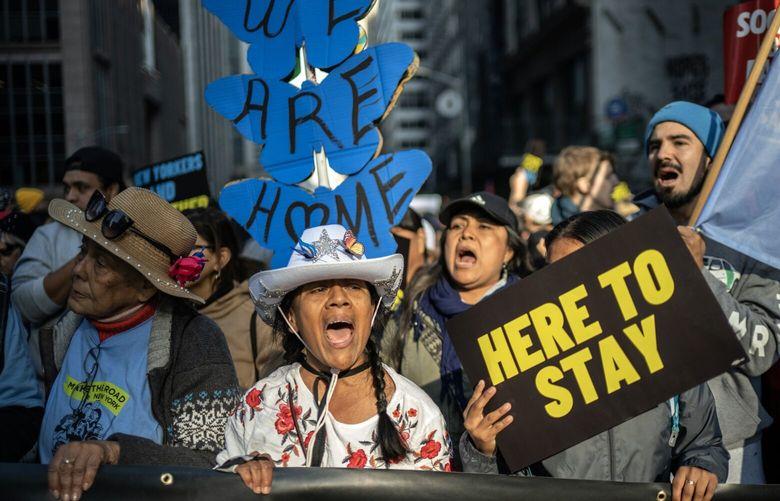The question of whether to support mass deportation of all illegal immigrants is one of the most controversial and hotly debated issues in modern politics. It touches on national security, human rights, economic impact, and the future of immigration policy in the United States. Advocates for mass deportation argue that it is necessary for the country’s security and stability, while opponents warn about the humanitarian consequences and long-term implications of such a policy. In this article, we will explore both sides of the debate to understand the complexity of mass deportation and its potential effects on society.

Supporters of mass deportation view it as a critical step in securing the nation’s borders and enforcing immigration laws. They argue that illegal immigration poses a significant threat to national security, economy, and public services. Many believe that by removing illegal immigrants, the U.S. can reduce crime rates, improve job opportunities for legal residents, and ease the burden on public welfare systems. From this perspective, deportation is seen not only as a measure to uphold the law but also as a way to protect American citizens from what they view as the negative effects of illegal immigration.
One of the primary arguments for mass deportation is the idea of deterring future illegal immigration. Proponents believe that by taking a tough stance and removing those who have entered the country unlawfully, the U.S. will send a clear message that illegal immigration will not be tolerated. This, in turn, could discourage others from attempting to cross the border without proper documentation. Supporters also argue that the U.S. government is obligated to prioritize the interests of its citizens, and mass deportation is seen as a way to protect American jobs, reduce competition for resources, and ensure that the country’s laws are respected.
Economically, supporters contend that deporting illegal immigrants would open up more job opportunities for legal residents. They argue that illegal immigrants often take low-wage jobs that could otherwise be filled by citizens or legal residents. By removing a large portion of the illegal workforce, proponents believe that the labor market would become more favorable to those who are legally authorized to work, potentially reducing unemployment and increasing wages for American workers. Additionally, supporters argue that the strain on public services, such as healthcare, education, and housing, would decrease as illegal immigrants, who are often reliant on government assistance, are removed from the system.

On the other hand, opponents of mass deportation argue that such a policy would have devastating humanitarian and economic consequences. They point out that many illegal immigrants have been living and working in the U.S. for years, contributing to the economy and society in meaningful ways. These individuals, they argue, have built lives in the U.S., often raising families and paying taxes, and mass deportation would tear apart communities and disrupt countless lives. Opponents believe that such an approach lacks compassion and does not take into account the human side of immigration.
Critics also argue that mass deportation would be costly and logistically challenging. The financial burden of deporting millions of people would be immense, and the resources required to carry out such a large-scale operation would likely outweigh any perceived benefits. Furthermore, critics warn that mass deportation could create fear and division within communities, as many illegal immigrants are integrated into local economies and social systems. This fear could lead to reluctance among immigrants to cooperate with authorities, making it more difficult to address other issues, such as crime and public safety.
Another argument against mass deportation is the potential negative impact on the economy. Many illegal immigrants work in essential industries, such as agriculture, construction, and hospitality, where labor shortages could occur if they were removed. These industries rely heavily on immigrant labor, and deporting such a large portion of the workforce could lead to increased labor costs and decreased productivity. This could hurt businesses, drive up prices for consumers, and even result in a decline in the country’s overall economic output. In this regard, critics argue that comprehensive immigration reform, rather than mass deportation, is the better solution.
Furthermore, mass deportation does not address the root causes of illegal immigration, such as poverty, violence, and political instability in other countries. Critics argue that a more comprehensive approach, which includes foreign aid, improved immigration processes, and support for asylum seekers, would be more effective in addressing the problem in the long term. Instead of focusing on punishment and removal, they believe the U.S. should invest in addressing the systemic issues that drive people to seek a better life in America.
Ultimately, the question of whether to support mass deportation of all illegal immigrants is a complex and multifaceted issue that touches on legal, moral, economic, and humanitarian considerations. While supporters view it as a necessary step to protect the nation and its resources, opponents argue that it would cause widespread harm, disproportionately affect families, and undermine the country’s economic and social fabric. A balanced and thoughtful approach to immigration reform, focusing on both enforcement and compassion, may be the key to resolving the issue and creating a fairer, more effective immigration system for the future. As the debate continues, it remains clear that finding a solution that respects both the rule of law and the dignity of individuals will be critical in shaping the future of U.S. immigration policy.






